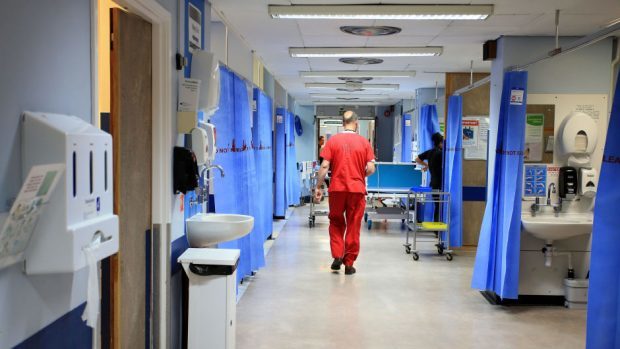Older patients stuck in hospital can age the equivalent of 30 years in just three weeks, according to a new report.
The document, from the Scottish Parliament’s health and sport committee, has highlighted the severe detrimental effects people can suffer because of delayed discharges.
Nearly one in five who can move independently before admission to hospital will require help to walk after they have been discharged.
The report also says that three weeks in bed will leave elderly patients with the equivalent of 30 years of muscle wastage.
Charity Age Scotland has said delayed discharge figures are “spiralling out of control” because a lack of social carers mean people are waiting longer for post-hospital care to be organised.
Chief executive Brian Sloan has urged the Scottish Government to urgently make “intensive” investments to ease the problem.
“Older people tell us they are afraid of going into hospital in case they never leave,” he said.
“Spending time in hospital unnecessarily can put patients at greater risk of infection and mobility loss.
“It can also have a severe impact on their mental health, increasing the risk of loneliness and isolation.
“Hospital staff are working tirelessly to help patients, but there is simply not enough social care at the other end to provide the safe and effective care needed by older, vulnerable patients.
“The Scottish Government’s new investment of hundreds of millions of pounds into social care is very welcome, but it’s also down to health and social care partnerships to deliver.
“We want to know when we will see the significant improvement this money should realise and where the buck stops if it does not.”
A Scottish Government spokesman said: “Reducing unnecessary time in hospital is about more than money. It is about delivering the right care in the right place.
“With record investment of £14 billion in our health service this year alone, progress has been made in reducing delays in discharge in recent years, with an overall reduction of 1% in the number of bed days lost since 2016-17.
“We are working with our partners in local government, the NHS, and in integration authorities to improve performance and reduce delays.”
